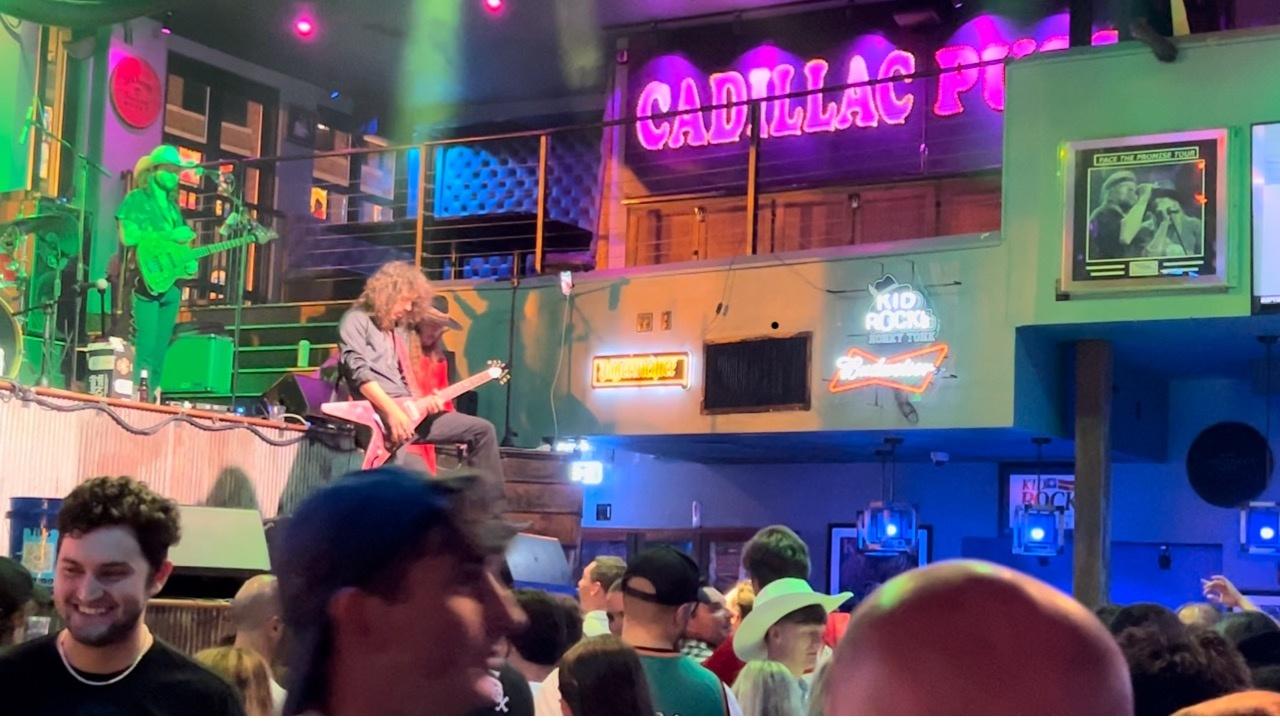There was a party in Nashville last month as more than 1,200 people attended the annual World Ticket Conference. The conference, which has been held annually for more than a decade is organized by attorney Gary Adler, long time counselor to the National Association for Ticket Brokers. NATB is a trade organization whose members have changed ticketing from a market in which if you didn’t know to purchase tickets the day they went on sale you were out of luck to a market in which there is nearly continuous supply, often at a discount to face value.
The ticketing ecosystem is vast and not well understood. There are multi-billion dollar silos in which executives compete for audience and sales. At its most simple, these silos are the primary ticketing companies both big and small like AEG, Ticketmaster or Vivenu, secondary market ticket resellers such as Vivid Seats, TickPick, or StubHub, plus major sports leagues which control their own distribution of tickets. In addition, theater tickets have their own distribution channels.
The World Ticket Conference is where representatives from all facets of the industry come to meet with their friends and competitors, and to learn the ways in which market forces and changes to technology may affect the upcoming year. The trends for 2024 which are developing seem to portend a shift to higher demand and lower price sensitivity for a very select few acts, and a much faster decline in ticket prices for almost everything else other than the playoffs in major sports leagues such as basketball, football, tennis, baseball and hockey.
In a contentious legislative year for the ticketing industry, the World Ticket Conference addressed key issues and brought perspective to its members and guests. There is steady demand for live entertainment of all sorts, but the economy is forcing tough choices on those with more constrained cash flow.
The ongoing industry struggle is over control. Performers and Sport Leagues want exclusive power over prices, so that tickets for events with underwhelming demand do not compete with discounted tickets. In other industries, that would be considered a type of price control and is frowned upon. Ticketing companies do not want competition from those who purchase and hold tickets for later sale. If ticket prices later rise, consumers benefit when those who purchased earlier are able to sell consumers tickets at a discount to the new higher price. Conversely, when demand underwhelms, ticket companies have to compete with secondary market sellers who mark the prices down to market value. A study over the past year shows that of more than 80,000 live events put on sale, approximately 55% of the events had tickets sold under face value through secondary market outlets. In this industry the primary ticket sellers do not want discounts, but the fans sure do. They saved more than $440 million dollars buying tickets for less than the face value asking price at the box office.
There is a fundamental misconception of how the primary and secondary markets impact each other and consumers. Primary markets put tickets on sale, with the expectation to sell them all over the few days in which the tickets first release. The order is usually a pre-sale based upon an extremely limited number of tickets dependent upon a code release or paid affinity partner such as Spotify for access. The next day is a broader distribution of tickets for a credit card partner which might be American Express, Citibank, or Capital One. To purchase tickets from that release requires use of the identified sponsoring credit card. The third day of presales may be based upon an artist or venue issued code in order to gain access to the purchasing portal. And, finally, of the fourth day, any tickets which remain are offered to the general public.
Ticket resellers usually are well informed about how and when these various tickets release. They risk their own money buying tickets in the hope that prices will rise, although data confirms now that more than half the tickets placed on sale go down in value. The ability for consumers to purchase tickets at a discount is almost exclusively a result of a free and competitive secondary marketplace and the losses incurred by ticket resellers who own tickets with diminishing value.
Putting artists out on tour is expensive. If they do not sell enough tickets when tickets are placed on sale, the shows themselves are at risk of cancellation as we’ve seen this year with acts like Jennifer Lopez and The Black Keys among many others. Ticket resellers put hundreds of millions of dollars at risk buying inventory when tickets go on sale. Those purchases help provide the funding to secure a tour, and also make it possible for fans to make a purchasing decision as late as the day of the show, rather than months earlier. For many fans it is too risky to buy tickets to attend a show scheduled nine months in the future, or to tie up their own money for that length of time. Often those purchases live on consumers’ credit cards at painfully high rates of interest. Fans don’t save any money by purchasing a ticket the day the show first goes on sale, and paying interest for more than half a year until the show date at 24.9% interest when they could likely buy that very same ticket the day of the show at face value or less. In fact, a savvy consumer could decide to only buy tickets to events which are priced at a deep discount. Those options are plentiful.
The secondary market also makes it possible to hear about a show which is taking place tomorrow and still get tickets. Similarly, if fans unexpectedly find themselves out of town, plentiful options remain for them to purchase a last minute ticket, often at a discount and go to an event when they travel.
A common refrain from the World Ticket Conference is the simple common sense that ticketing is too complex for the fans. Rather than layering on complications to purchase tickets, delays in delivering them, and threats that tickets bought from one market might not be valid if sold on another, fans would likely buy more tickets if the process was simplified. The more aggravation fans feel, the less they are inclined to buy tickets for anything other than the few megastar or playoff events. The whole ecosystem has to prosper in order for the future megastars to exist. In a world in which Amazon will deliver almost anything to your home in four hours with one click, it is foolish for any company to irritate its customers to the point they march on Washington. At this moment the entire distribution process is subject to upheaval. But, that won’t likely result from government intervention. It will come from the fans who decide that they will only buy tickets on the day of the event. Should that occur, the ticketing ecosystem will have no one to blame but itself.
There is nothing easy about organizing a conference of fierce competitors in a year in which governments in more than half the states and at the federal level are all evaluating what, if any legislative changes should be implemented. Regardless of the competition, events do occur and tickets are ultimately distributed from the primary issuer through the secondary marketplace which may have resold the ticket and into the hands of the fan who has the ticket scanned at the event gate to enter. Millions of tickets trade each year, nearly all without incident. Technology continues to improve the ways in which tickets can move through the market as clearly seen at World Ticket Conference. If there was an issue it would have been discussed. Like the dog which famously did not bark, the lack of conversation about tickets failing at the gate was not an issue. The ongoing turf battles between markets, promoters and teams likely costs more in potential revenue than it protects. This could very well be an actual case study in stepping over dollars to pick up dimes.
Curiously, in a free market economy, shares of a ticketing companies stock rise and fall based upon demand and supply. While these stock prices gyrate based upon investors’ belief in the underlying potential revenue being created by these companies, state and federal governments are working to implement rules around price, transferability and who actually owns the rights to a ticket once purchased. These are issues which will be debated endlessly as primary sellers on behalf of their acts or teams want to maximize prices whenever they have a “hot” selling event, but do not want consumers to have the benefit of falling prices when an event underperforms. The stock market equivalent would be to allow prices to rise, but to preclude them from falling. Imagine that.
People who work in the live entertainment space tend to be gregarious, and fans of performance. Bring them all to a town like Nashville and watch as they congregate. This is not rocket science. It’s selling access to fun. Gary Adler and his team put on multiple dinners and cocktail parties, panel discussions with industry leaders, and the open discussion of issues facing the industry. There was even a keynote speech by Dr. J about his history in the National Basketball Association. After hours there were events which brought everyone out for the bonding and socialization which is the key to building a stable community of competitors.
World Ticket Conference looks at the issues facing all sectors of the ticketing space. It draws the most knowledgeable people in the industry and they have the chance to talk in person about how things are and where they might go next. This is all valuable context in an ever evolving industry which continues to expand globally. Tickets are already on sale for next year’s World Ticket Conference 2025. The dates are July 22nd through July 24, 2025 at the Omni Hotel in Nashville.
Read the full article here





